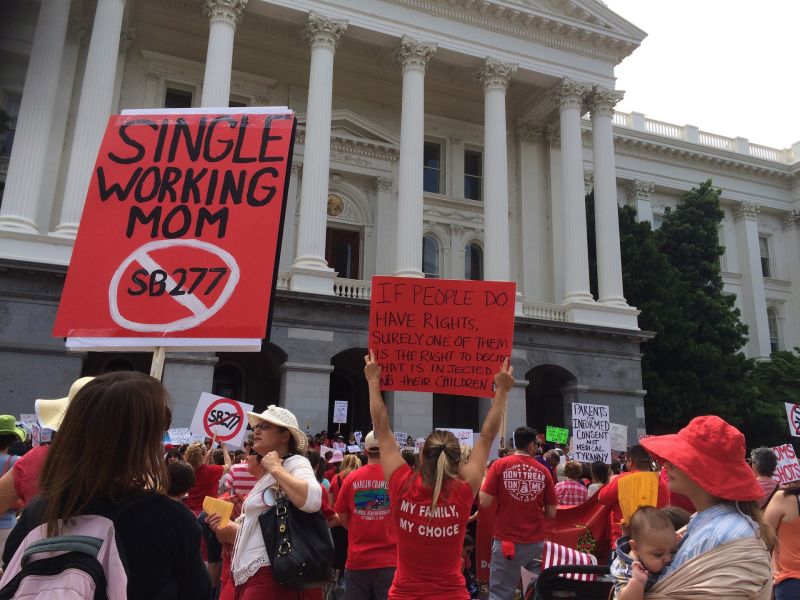First, in 1905, the Supreme Court in Jacobson v. Commonwealth of Massachusetts essentially ruled that the states could enforce mandatory vaccination laws.
Reiss noted that Jacobson found "states have extensive leeway to require vaccination."
California never had a religious exemption written into the law. Instead the state had only a "personal belief exemption," now abolished by SB277. Only those children with a medical exemption may attend school without being vaccinated.
And that brings us to the second key case.
In 1944, the U.S. Supreme Court heard arguments in Prince v. Massachusetts. The case was not explicitly about vaccines -- a Jehovah's Witness was charged with violating child labor law by having her child sell religious material. Rather, the case is seen as one that spells out limits on parental rights. Parents do not have absolute authority over their children, and that can include decisions about vaccination. From the decision:
"The right to practice religion freely does not include liberty to expose the community or the child to communicable disease or the latter to ill health or death."
"You don't get out of a general law because you have a religious exemption," Reiss told me. She used taxes as an example. You may have a religious objection, but you still must pay. Because SB277 is "not aimed at a particular religion," one cannot apply a religious exemption.
Returning to the challenge to the New York law, Reiss said that by declining an opportunity to consider it, the Supreme Court is not reaffirming these older decisions. But it is also declining an opportunity to reconsider those rulings.
It may be that the petition was denied "because there are not four justices on the Supreme Court who think Jacobson is such bad law that it should be overturned," Reiss wrote on Skeptical Raptor.
Here in California the new vaccine law appears to raise a different constitutional question -- all California children have a constitutional right to an education. Under SB277, children who are not vaccinated cannot attend school.
Is the constitutional right to an education violated by SB277?
Reiss said she believes a constitutional challenge on these grounds would be "incorrect." She pointed to a series of famous cases in California, Serrano v. Priest, which found inequity in school financing. Schools were found to be "discriminating on wealth," Reiss said.
But requiring schoolchildren to be vaccinated is not a violation under Serrano v. Priest, Reiss said, because choosing not to vaccinate is a behavior and not a fact of one's existence, such as wealth or race. "It is perfectly legitimate for the state to regulate behavior, which is what SB277 does," Reiss said.
The new law goes into effect next July 1.
Oct. 8, 2015: this post has been updated to clarify that New York state permits a religious exemption from its vaccine mandate.
